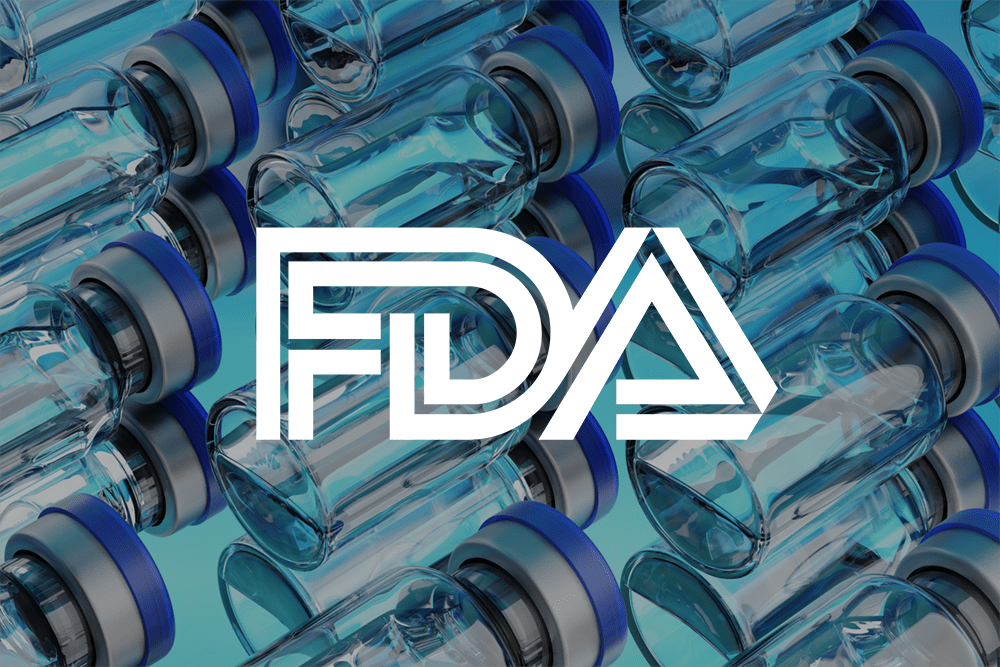November 17, 2022
Latest FDA Approvals for Biocom California Members

A timely update on the latest drug approvals received by Biocom California member companies from the U.S. Food and Drug Administration (FDA) from September through November.
Agency Grants bluebird bio Accelerated Approval for Skysona Therapy
Skysona, the first cell-based gene therapy that slows the progression of neurologic dysfunction in patients with early, active cerebral adrenoleukodystrophy (CALD), was granted accelerated approval. Childhood CALD is a life-threatening genetic condition caused by mutations in the ABCD1 gene, and only males are affected. The agency says that symptoms of CALD are inattention, behavior difficulties and neurologic dysfunction that appear between the ages of four and 10. Left untreated, the condition can cause inflammation and damage in the brain, and lead to neurologic disability and ultimately death in the second decade of the patient’s life. Skysona (elivaldogene autotemcel), which was developed by Massachusetts-based bluebird bio, was indicated to slow the progression of neurologic dysfunction in boys ages four to 17 with early, active CALD.
Eli Lilly’s Retevmo Receives Accelerated Approval for Treatment of Some Cancer Tumors and Non-Small Cell Lung Cancer
Retevmo (selpercatinib), a kinase inhibitor therapy for adults with locally advanced or metastatic solid tumors with a rearranged during transfection (RET) gene fusion, was granted accelerated approval by the agency. The FDA also granted regular approval for Retevmo to treat adults with locally advanced or metastatic non-small cell lung cancer with a RET gene fusion, as detected by an FDA-approved test. Thermo Fisher Scientific’s Oncomine Dx Target (ODxT) Test is approved by the agency as a companion diagnostic for selpercatinib. Selpercatinib is the first and only RET inhibitor for these types of cancers, and is taken in pill form.
GlaxoSmithKline Granted Approval for Tdap Vaccine During Pregnancy to Prevent Whooping Cough in Infants
Boostrix, GlaxoSmithKline Biologicals’ immunization for pertussis, or whooping cough, was approved to be administered during the third trimester of pregnancy to prevent pertussis in infants younger than two months. Boostrix was initially approved by the FDA in 2005 as a single dose for booster immunization against tetanus, diphtheria and pertussis (Tdap) in individuals 10 through 18 years of age. “While vaccination is the best method for providing protection, infants younger than two months of age are too young to be protected by the childhood pertussis vaccine series. This is the first vaccine approved specifically for use during pregnancy to prevent a disease in young infants whose mothers are vaccinated during pregnancy,” Peter Marks, M.D., Ph.D., director of the FDA’s Center for Biologics Evaluation and Research, said in a release.
Abbott Molecular Receives Emergency Use Authorization for First Commercial Monkeypox Test Kit
In October, Abbott Molecular Inc. received Emergency Use Authorization (EUA) for Alinity m MPXV, its real-time polymerase chain reaction (PCR) test intended to detect monkeypox DNA. The test uses lesion swab specimens from individuals suspected of monkeypox virus infection, and is intended to be used by qualified clinical laboratory personnel. Testing is limited to laboratories certified under the Clinical Laboratory Improvement Amendments of 1988 (CLIA) that meet the requirements to perform moderate or high complexity tests. The agency says Alinity m MPXV is the first commercial test kit to be authorized for detection of monkeypox.
First OTC COVID-19 Test Using Saliva Samples Granted Emergency Use Authorization
Los Angeles-based Aptitude Medical Inc. received EUA for the first over-the-counter molecular test that uses saliva specimens to test for SARS-CoV-2. Its Metrix COVID-19 Test is a single-use molecular in vitro diagnostic test and is authorized for at-home use without a prescription, and is meant to test both nasal swab and saliva samples from people ages 14 or older, or ages two and older (when collected by an adult).
FDA Amends EUA for COVID-19 Bivalent Vaccines for Use as Booster Dose in Younger Age Groups
Last month, the FDA amended the EUA for the Moderna and Pfizer-BioNTech Bivalent COVID-19 vaccines to authorize their use as a single booster dose in younger age groups. The Moderna bivalent vaccine is authorized for administration at least two months following completion of primary or booster vaccination in children down to six years of age. The Pfizer-BioNTech bivalent vaccine is authorized for administration at least two months following completion of primary or booster vaccination in children down to five years of age.